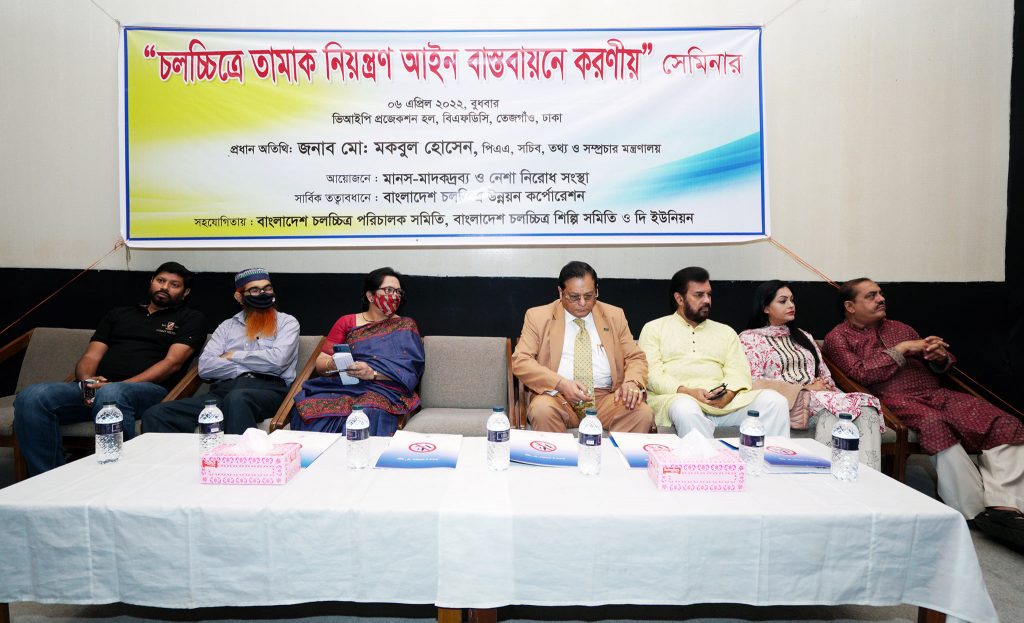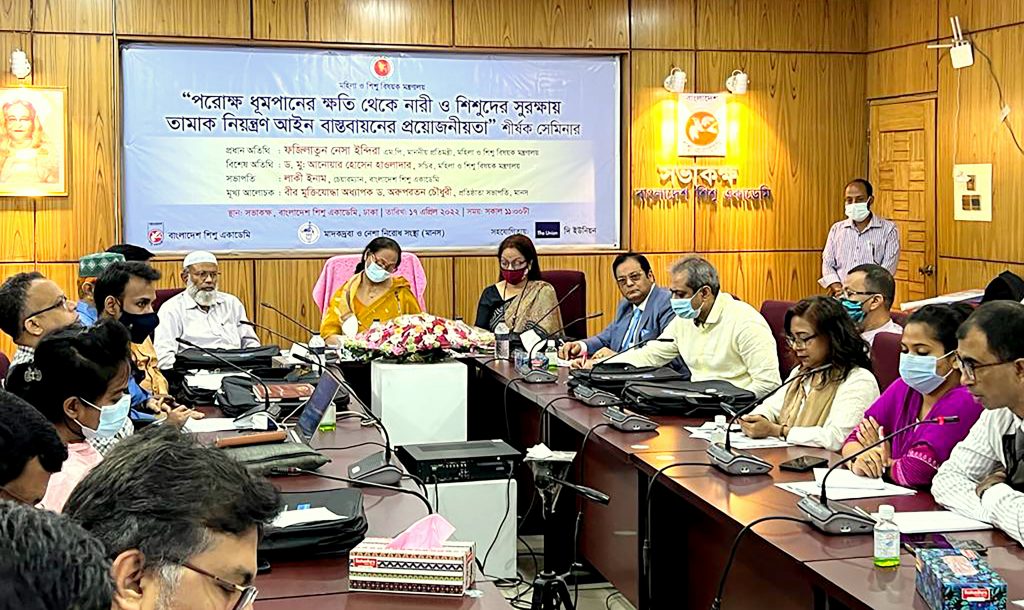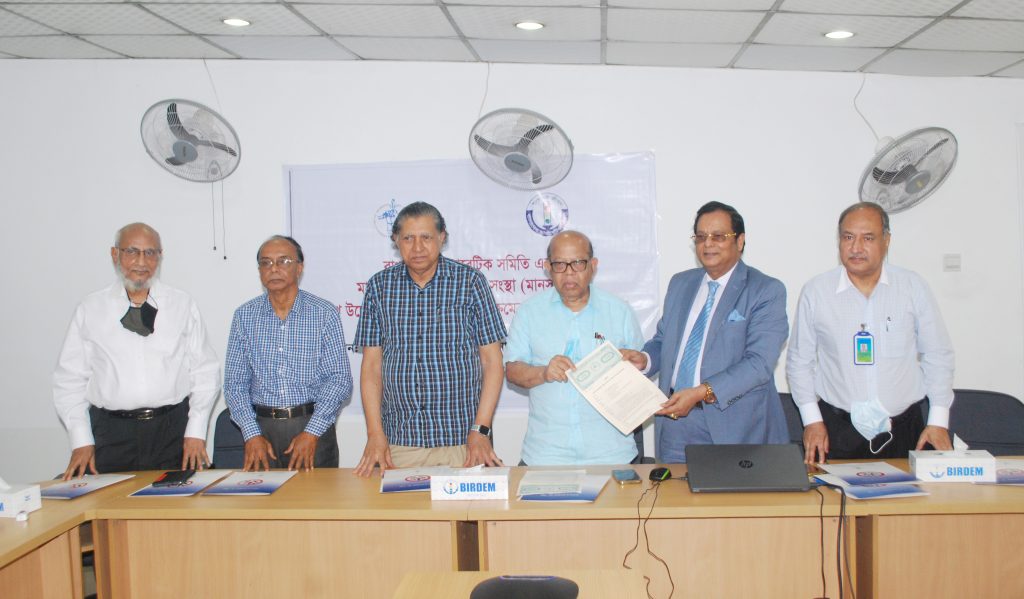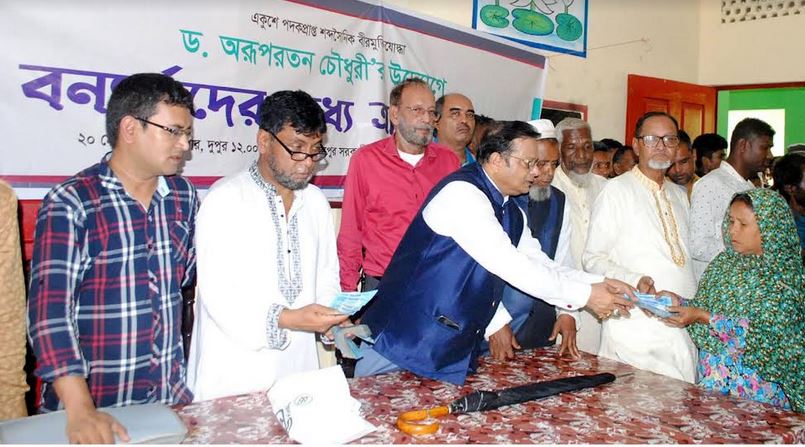Tobacco cultivation threatened food security
– MANAS Press Conference on the Occasion of World No Tobacco Day-2023
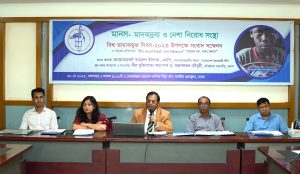
Public health, environmental protection, development and food security are the major concerns in Bangladesh. Tobacco threatened every aspect of public health, environment, development and food security. Effective steps should be taken immediately to finalize the ‘Tobacco Cultivation Control Policy’ to stop tobacco cultivation. Speakers expressed this opinion in a press conference at today morning (May 30, 2023), organized by ‘MANAS’ at the National Press Club.
Heroic freedom fighter Professor Dr. Aruparatan Choudhury founder and president of ‘MANAS’ presented the keynote paper at this press conference while organizing secretary of MANAS, freedom fighter Matiur Rahman Talukder gave the welcome speech. Aid Foundation program director Sagufta Sultana, and Development Activities of Society (DAS) Team Leader Aminul Islam Bakul also spoke in the program.
In the keynote, the founder president of MANAS, Professor Dr. Aruparatan Choudhury said that 99,600.24 acres of land in Bangladesh is used for tobacco cultivation and 1.3 percent of the world’s tobacco is grown in Bangladesh. It is disrupting the country’s food production and if it continues like this, it may create food crisis in the future. Due to cultivation, the land for cultivation of food crops is decreasing. There is a shortage of nutritious food in all the districts where tobacco is grown. Tobacco farming is also having adverse effects on the environment, ecology, causes of deforestation, soil degradation and polluted water.
Highlighting the research data, he also said that the amount of tobacco produced in 1 acre of land requires about 5 tons of wood to dry it and 30% of the country’s forests are cleared for tobacco leaf curing alone. Pesticides and chemicals used in tobacco cultivation have caused irreparable damage to biodiversity, and animals. One in 4 tobacco growers suffers from ‘green tobacco sickness’. The amount of nicotine a tobacco smoker consumes in 50 cigarettes is the same amount of nicotine a tobacco farmer absorbs in one day! Which is terrible! People in tobacco-prone areas especially: pregnant women suffer from various health problems. As they give birth to disabled, handicapped children, the rate of the disabled population is high in all those areas.
It should be noted that every year May 31st is observed as ‘World No Tobacco Day’ across the world, including Bangladesh, for the purpose of anti-tobacco awareness. The World Health Organization has set the theme of the day this year as “We need food: not tobacco”. The day is being celebrated through various events on this theme. Tobacco control laws and related rules have been passed in the country. Prime Minister Sheikh Hasina has expressed her determination to make Bangladesh tobacco-free by 2040. Officials of WBB Trust, NATAB, Bureau of Economic Research, and various anti-tobacco organizations were present in the press conference moderated by Umm Jannat, project coordinator of MANAS.
The following recommendations emerged from the press conference:
- 1) Ban on tobacco cultivation in crops land and Passage of ‘Tobacco Cultivation Control Policy’ quickly to ensure food security;
- Implementing government initiatives to encourage farmers to grow alternative crops to tobacco;
- Formulation of a nationwide ‘National Tobacco Control Programme’;
- Withdrawal share of government from BAT’B and withdrawal of government officials from the board of directors;
- To finalize the ‘Roadmap’ for the implementation of the Hon’ble Prime Minister’s Tobacco-Free Bangladesh;
- Re-imposition of 25% duty on the export of tobacco leaves;
- 7) Prohibition of ‘CSR’ programs by tobacco companies by amending the Tobacco Control Act;
- Prohibition of import, export, marketing, and promotion of e-cigarettes;
- Strict implementation of provisions prohibiting the purchase and sale of tobacco products by minors;
- Speedy passage of amendments to the Tobacco Control Act; and
- Formulation of “Guidelines” by public institutions in accordance with Article 5.3 of the FCTC.
